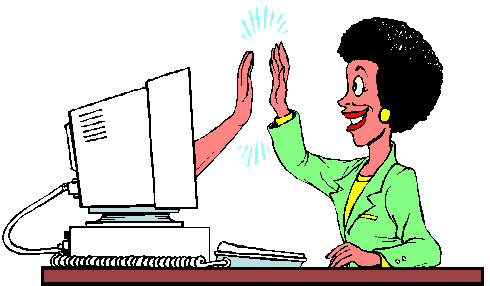|
What is the difference
between a Database and the Internet?
 A
database is a
collection of data arranged for ease and speed of search and retrieval.
It is also called a data bank. The University Libraries subscribe to
many databases that support students’ coursework. These databases are
proprietary; in other words, they contain much copyrighted information
and must be paid for. The library pays licensing fees for these so the
students might use them. These databases contain information that is
reliable and appropriate for use in class assignments. Some
of the information provided by the databases is stored on Seton Hall’s
main computers, while some information is retrieved via Internet
connection to computers owned by database companies. All
are accessible through the Seton Hall University computer network. A
database is a
collection of data arranged for ease and speed of search and retrieval.
It is also called a data bank. The University Libraries subscribe to
many databases that support students’ coursework. These databases are
proprietary; in other words, they contain much copyrighted information
and must be paid for. The library pays licensing fees for these so the
students might use them. These databases contain information that is
reliable and appropriate for use in class assignments. Some
of the information provided by the databases is stored on Seton Hall’s
main computers, while some information is retrieved via Internet
connection to computers owned by database companies. All
are accessible through the Seton Hall University computer network.
An
Internet search engine
is a software program that searches the Internet and gathers and reports
information or is related to specified terms. The search engine will
generally provide access to web pages that are indexed by a given
Internet company. Many of these pages seem to present information that
can be used for student’s courses. However, they differ from the
library databases in three major ways: specified terms. The search engine will
generally provide access to web pages that are indexed by a given
Internet company. Many of these pages seem to present information that
can be used for student’s courses. However, they differ from the
library databases in three major ways:
-
Much of the information
presented on the Internet is not reliable, since anyone can publish a
web page without any fact checking or verification
-
Good,
reliable resources on the Internet are usually fee-based
-
Internet search engines are not as sophisticated as the library database
search engines, which makes fine-tuned research very difficult. Thus,
students may find that they find too much of the wrong information
Therefore, it is
best to use the library databases for coursework research. The
information retrieved is reliable and of high quality, the databases are
paid for by the University Libraries, and they allow for a variety of
search strategies, so students don’t have to wade through useless
information in order to find relevant resources.
|